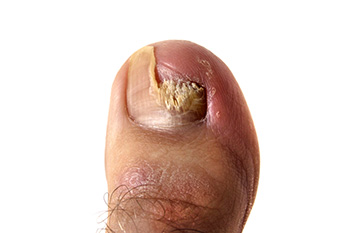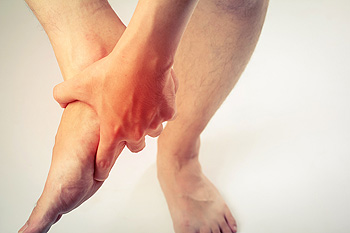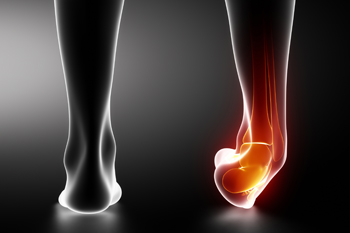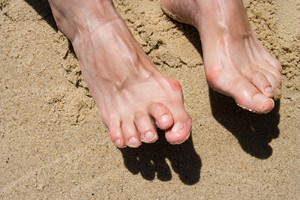Garner (919) 661-4150

Fungal infections of the toenails can cause thickening, discoloration, and crumbling of the nail. While oral medications are sometimes used, many cases can be managed with topical or device-based treatments. Antifungal creams, gels, or medicated nail lacquers are applied directly to the nail and surrounding skin. These treatments work best when used consistently and in the early stages of infection. In addition to topical solutions, device-based options like laser therapy are becoming more common. Lasers target the fungus beneath the nail without damaging surrounding tissue, and are typically done in a podiatrist’s office. Another approach involves mechanical thinning or filing of the nail to help treatments penetrate deeper. Results can take several months, as toenails grow slowly. If you have a stubborn or worsening toenail infection, it is suggested that you see a podiatrist for a diagnosis and treatment that is right for you.
For more information about treatment, contact Chukwuma Ukata, DPM of Advanced Carolina Foot and Ankle Center. Our doctor can provide the care you need to keep you pain-free and on your feet.
Toenail Fungus Treatment
Toenail fungus is a condition that affects many people and can be especially hard to get rid of. Fortunately, there are several methods to go about treating and avoiding it.
Antifungals & Deterrence
Oral antifungal medicine has been shown to be effective in many cases. It is important to consult with a podiatrist to determine the proper regiment for you, or potentially explore other options.
Applying foot powder on the feet and shoes helps keep the feet free of moisture and sweat.
Sandals or open toed shoes – Wearing these will allow air movement and help keep feet dry. They also expose your feet to light, which fungus cannot tolerate. Socks with moisture wicking material also help as well.
If you have any questions please feel free to contact our office located in Garner, NC . We offer the newest diagnostic tools and technology to treat your foot and ankle needs.

Plantar fasciitis is one of the most common causes of heel pain, affecting people of all ages. It occurs when the plantar fascia, the thick band of tissue running along the bottom of your foot, becomes inflamed. Causes include overuse, wearing poor footwear, high-impact activities, or having either flat feet or high arches. Symptoms typically include a sharp, stabbing pain in the heel, especially with the first steps in the morning or after long periods of rest. The pain often improves with movement, but may return after standing or walking for long periods of time. A podiatrist can help by diagnosing the condition through a physical exam and imaging. Treatment includes custom orthotics, stretching exercises, a night splint, or anti-inflammatory medication. In some cases, injections, or even surgery, may be recommended to reduce inflammation and promote healing. If you have this condition, it is suggested that you schedule an appointment with a podiatrist for appropriate treatment.
Plantar fasciitis is a common foot condition that is often caused by a strain injury. If you are experiencing heel pain or symptoms of plantar fasciitis, contact Chukwuma Ukata, DPM from Advanced Carolina Foot and Ankle Center. Our doctor can provide the care you need to keep you pain-free and on your feet.
What Is Plantar Fasciitis?
Plantar fasciitis is one of the most common causes of heel pain. The plantar fascia is a ligament that connects your heel to the front of your foot. When this ligament becomes inflamed, plantar fasciitis is the result. If you have plantar fasciitis you will have a stabbing pain that usually occurs with your first steps in the morning. As the day progresses and you walk around more, this pain will start to disappear, but it will return after long periods of standing or sitting.
What Causes Plantar Fasciitis?
- Excessive running
- Having high arches in your feet
- Other foot issues such as flat feet
- Pregnancy (due to the sudden weight gain)
- Being on your feet very often
There are some risk factors that may make you more likely to develop plantar fasciitis compared to others. The condition most commonly affects adults between the ages of 40 and 60. It also tends to affect people who are obese because the extra pounds result in extra stress being placed on the plantar fascia.
Prevention
- Take good care of your feet – Wear shoes that have good arch support and heel cushioning.
- Maintain a healthy weight
- If you are a runner, alternate running with other sports that won’t cause heel pain
There are a variety of treatment options available for plantar fasciitis along with the pain that accompanies it. Additionally, physical therapy is a very important component in the treatment process. It is important that you meet with your podiatrist to determine which treatment option is best for you.
If you have any questions, please feel free to contact our office located in Garner, NC . We offer the newest diagnostic and treatment technologies for all your foot care needs.

Foot fractures can sometimes be mistaken for ankle sprains because both injuries cause pain, swelling, and difficulty walking. A fracture happens when a bone in the foot breaks, either from a sudden injury or repeated stress over time. An ankle sprain, on the other hand, involves stretched or torn ligaments. Since the symptoms can look very similar, it is easy to miss a fracture without proper evaluation. A podiatrist will ask how the injury happened and examine the foot for tenderness, bruising, and movement issues. Imaging tests like X-rays are usually needed to confirm whether a bone is broken. Missing a fracture can lead to delayed healing, ongoing pain, or long-term foot problems. If you have an injury that is not improving as expected, or the pain seems worse than a typical sprain, it is suggested that you see a podiatrist for an accurate diagnosis and appropriate treatment.
Broken ankles need immediate treatment. If you are seeking treatment, contact Chukwuma Ukata, DPM from Advanced Carolina Foot and Ankle Center. Our doctor can provide the care you need to keep you pain-free and on your feet.
Broken Ankles
A broken ankle is experienced when a person fractures their tibia or fibula in the lower leg and ankle area. Both of these bones are attached at the bottom of the leg and combine to form what we know to be our ankle.
When a physician is referring to a break of the ankle, he or she is usually referring to a break in the area where the tibia and fibula are joined to create our ankle joint. Ankles are more prone to fractures because the ankle is an area that suffers a lot of pressure and stress. There are some obvious signs when a person experiences a fractured ankle, and the following symptoms may be present.
Symptoms of a Fractured Ankle
- Excessive pain when the area is touched or when any pressure is placed on the ankle
- Swelling around the area
- Bruising of the area
- Area appears to be deformed
If you suspect an ankle fracture, it is recommended to seek treatment as soon as possible. The sooner you have your podiatrist diagnose the fracture, the quicker you’ll be on the way towards recovery.
If you have any questions, please feel free to contact our office located in Garner, NC . We offer the newest diagnostic and treatment technologies for all your foot care needs.

As people age, changes in foot structure and walking style can lead to common toe problems. Seniors with flat feet, or pes planus, may be more likely to develop hammertoes and overlapping toes due to the way pressure is distributed when walking. In contrast, high arches, called cavus foot posture, do not appear to be linked to these specific concerns. Older adults who have a pronated foot function, meaning their feet roll inward while walking, may face a higher risk of developing bunions and overlapping toes. Those with supinated feet, which roll outward, may be less likely to develop bunions and big toe stiffness. Since foot posture often changes with age, it is important for seniors to have their foot health checked regularly. Early recognition of abnormal patterns can help reduce discomfort and prevent future complications. If you are a senior experiencing foot or toe problems, it is suggested that you see a podiatrist for a proper diagnosis and treatment.
Hammertoes can be a painful condition to live with. For more information, contact Chukwuma Ukata, DPM of Advanced Carolina Foot and Ankle Center. Our doctor will answer any of your foot- and ankle-related questions.
Hammertoe
Hammertoe is a foot deformity that occurs due to an imbalance in the muscles, tendons, or ligaments that normally hold the toe straight. It can be caused by the type of shoes you wear, your foot structure, trauma, and certain disease processes.
Symptoms
- Painful and/or difficult toe movement
- Swelling
- Joint stiffness
- Calluses/Corns
- Physical deformity
Risk Factors
- Age – The risk of hammertoe increases with age
- Sex – Women are more likely to have hammertoe compared to men
- Toe Length – You are more likely to develop hammertoe if your second toe is longer than your big toe
- Certain Diseases – Arthritis and diabetes may make you more likely to develop hammertoe
Treatment
If you have hammertoe, you should change into a more comfortable shoe that provides enough room for your toes. Exercises such as picking up marbles may strengthen and stretch your toe muscles. Nevertheless, it is important to seek assistance from a podiatrist in order to determine the severity of your hammertoe and see which treatment option will work best for you.
If you have any questions, please feel free to contact our office located in Garner, NC . We offer the newest diagnostic and treatment technologies for all your foot care needs.






